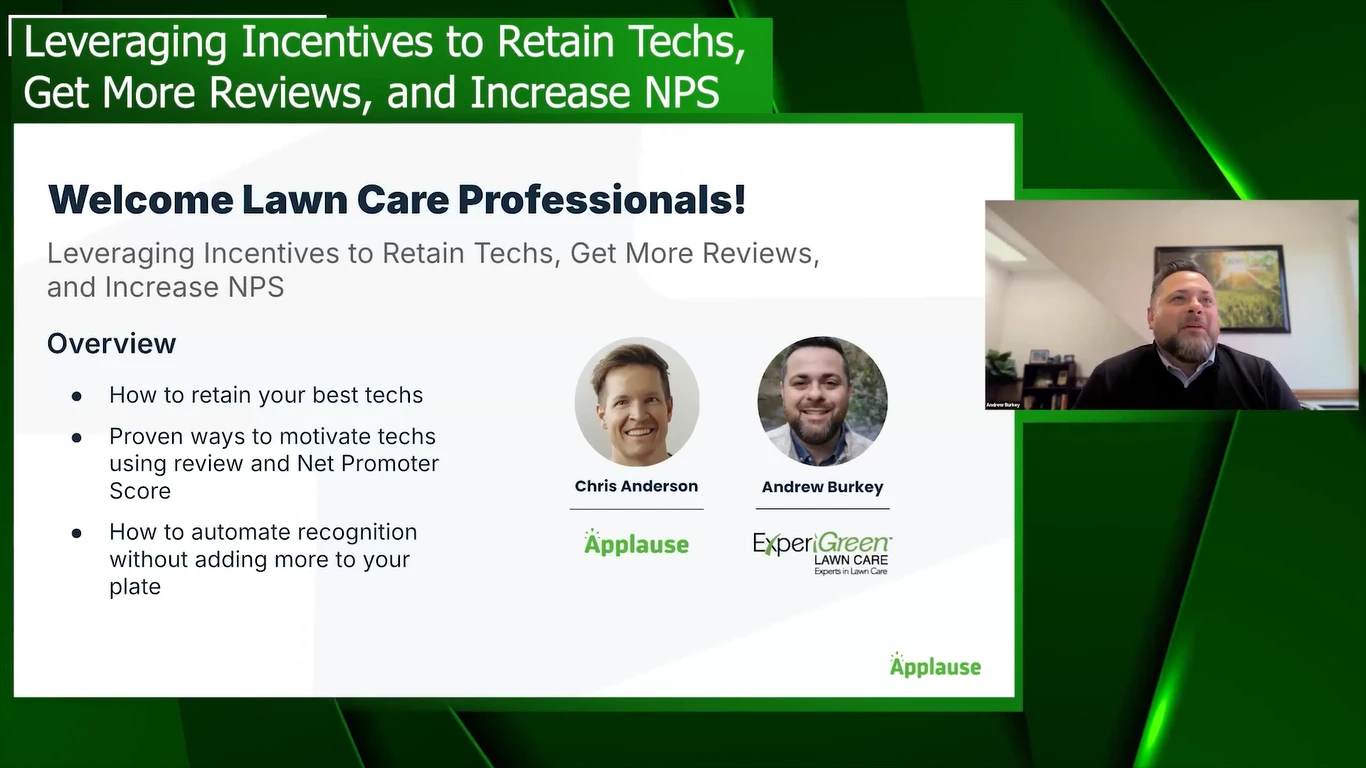
Statistics seem to be against the likelihood of even half of new businesses staying open to celebrate their fifth anniversary. According to Small Business Trends, “A bit more than 50 percent of small businesses fail in the first four years.” This could be troublesome news to anyone with a dream of operating their own company. However, you merely need to dive deeper into the statistics to realize that half of the businesses survived and continued to thrive. It is possible and it absolutely can be profitable to own your own landscaping business.
These are four keys to maintaining a successful business. Some require more immediate attention, and others must remain top-of-mind all of the time.
1. Systems, protocols and processes.
These are words that are thrown around often when referring to the function or operation of a business. You often hear, “The business isn’t successful because there are no systems in place.” Or, “Not everyone is following the proper protocols.” Many times when speaking to employees, they state that they didn’t know that there was a protocol in place, or they weren’t trained on the rules.
Your systems determine how you want your business to run. The process is the step to get it done.
Creating a system of accountability means that each team member understands what the job is and who is responsible for making it happen.
It is recommended that each and every process be written down; it may seem overwhelming, yet it will be so helpful when training a new team member. The final thought on this step is to review your processes often. The world is ever-changing and so is your business.
2. Know your numbers. Know your business.
What does it cost to open your doors? Is your payroll within normal limits for your industry? This may seem like a no-brainer. However, many of the businesses that failed did so because someone else had a better handle on their numbers than the owner.
What numbers are important? The obvious answer is your income and expenses. Looking a bit deeper, make sure you understand what is coming in and what is going out at all times. If there is something suspicious, ask and make sure you are comfortable with the answer.
3. The tricky art of marketing.
The purpose of marketing is to let people know that your doors are open. You have something they need that could make life easier, faster, better. It’s not enough to just open your doors and expect the masses will come flooding inside.
What is marketing? To put it simply, everything is marketing. There is internal and external marketing.
Internal marketing is customer service and office décor. It is often said that a client or customer loves the storeowner but can’t stand dealing with staff, or vice versa. The look of the office from the moment a customer gets out of their car, is marketing. Is there trash they have to step over? Or might there be a strange odor in the office?
An interesting exercise is to walk through the office, with a customer’s eyes, from the front door until a customer’s business is typically concluded. So, take a look at your office from the viewpoint of your customer.
External marketing is how you tell people about your business throughout the community. Ads, website, billboards, Facebook and community events are all forms of external marketing. Customer attraction and retention must be a constant focus for the health of a business. You need to be aware of how you are getting your new customers based on what you are doing and determine the return on investment for everything you do. At the same time, have a method for customers to let you know if their experience with your business did not meet their expectations. This would require a post-visit survey or even a follow-up phone call.
What does your front door look like? Is there something that is unsightly enough to turn someone away? The marketing of your office is much more than magazine ads, website design or asking for referrals. It begins with the appearance of your office. You want to put your best foot forward from the very beginning and for some that may be driving by. Seeing the peeling sign or overgrown shrubbery could be negative enough for them to decide to drive on, or worse, your competition down the street is attracting customers with their newly painted sign.
The purpose of marketing is to let people know your doors are open. You have something that they need. Janice Janssen, business consultant
4.Communicate.
We all know how to talk, but do we all know how to communicate? Effective communication is much more than merely transferring information. Consider these two ways to communicate: verbal and written. Each is important and has their place in any business.
Written communication includes not only formal contracts or return policies, yet also, offer letters for hiring, performance reviews and counseling memos. Additionally, the written processes mentioned above have a strong value in their ability to thwart any barriers from providing excellent customer service. Anything that is discussed outside of the normal business processes should be documented to protect the business owner and the employee or customer.
Verbal communication with employees can include directives that take place at team meetings. It is through these meetings that the team understands the vision of the business and what the owner expects of their participation as an employee. These team meetings are a fabulous way to review processes, to ensure everyone is completing tasks the same way. Updates determined as a team are then put into the processes book. This keeps everyone on the same page.
Communications with customers are just as important to document in order to avoid a “he said, she said” type of event. If a promise is made, it should be written down.
The No. 1 frustration in most businesses is the lack of communication. This frustration can lead to good employees leaving or poor performance due to not understanding the role.
Owning a business is the dream of so many people, and it can continue to be a dream that is achieved on an ongoing basis. It is important to understand where your business stands and that the team in place has the owner’s vision ingrained in their mind with each action.

Explore the April 2018 Issue
Check out more from this issue and find your next story to read.
Latest from Lawn & Landscape
- PERC helps debut propane direct-injection fuel system at ACT Expo 2025
- Retargeting Ads – A Secret Weapon for Growing Your Lawn Care Business
- Leading a growing company
- Project EverGreen launches Clean Air Calculator
- Rain Bird acquires smart lawn care company OtO from Toronto
- PBI-Gordon names Marvin as VP of research and development
- Mean Green rolls out Vanquish Autonomous mower
- Focal Pointe launches new podcast series







